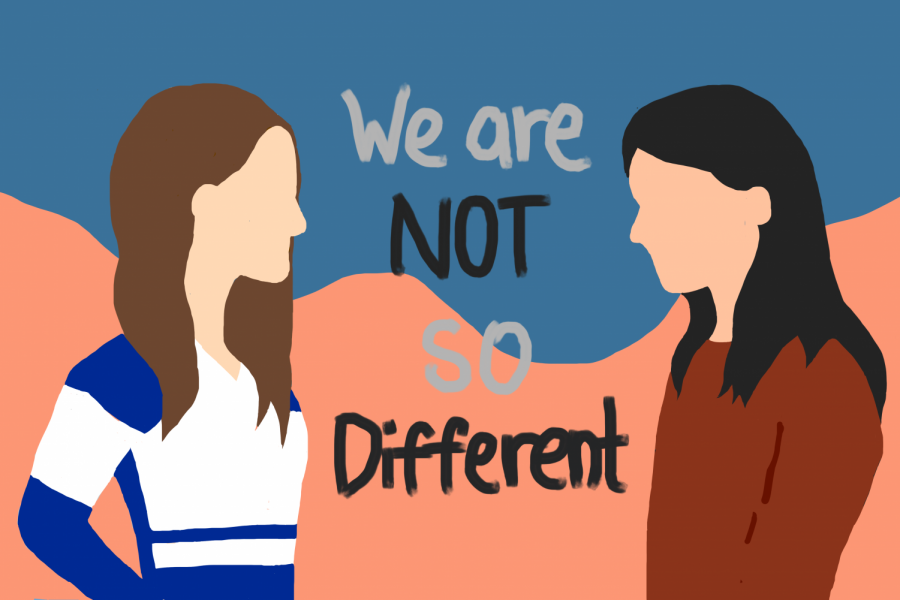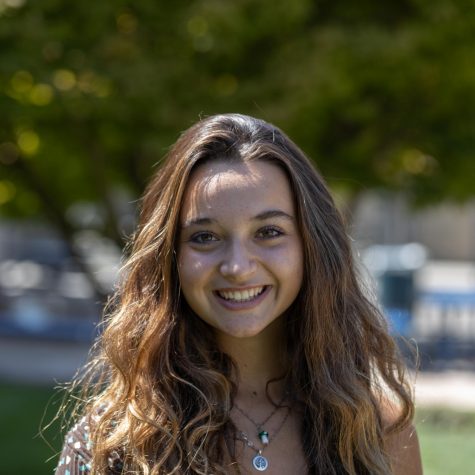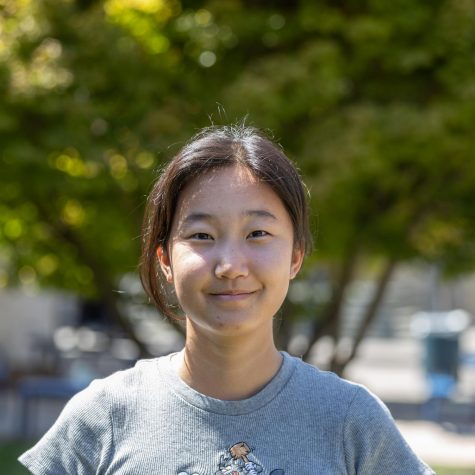A peppy cheerleader, a band geek and a pretentious journalist walk into high school…
High school cliques are no longer reserved for on-screen amusement; they seem to have become a reality. The teenage tendency to label others before properly meeting them is keeping students from discovering new interests and genuinely clicking with others, which is the entire point of high school.
I dream of being able to run away and create a new identity for myself — a new name, a new persona, a new me. I’m sick of the label I’ve been given: the superficial cheerleader. And even as more people discover that’s really not the case, I’m always stuck with my image, with my reality. But why do these labels exist in the first place? Why don’t we feel comfortable expanding past our self-declared boxes?
High school movies tend to portray students in exaggerated cliques, an ongoing joke of the portrayal of American high school, and I honestly don’t think it’s that far off from the truth. It’s nature that we find comfort in secluding ourselves to what we know — we do it all the time, but these cliquey tendencies detract from what high school should really be about: finding ourselves.
While it makes sense to associate a person with their hobbies or interests, these have become all-encompassing labels, leading to quick, unjust assumptions. They allow people to assume they know others based off of surface-level observations on social or educational interests. Oftentimes, they do more harm than good.
I started freshman year as an academically involved cheerleader. I was a cheerleader in band — the epitome of contradictory stereotypes. The band kids assume cheerleaders are air-headed party animals, and the cheerleaders assume band kids have no social skills with their heads buried in books 24/7. It was hard to find a place in both worlds.
Wearing that form-fitting, mini-skirt uniform to school on game days was miserable. I felt judged not only by other students, but also by teachers in my Honors classes. It hit me on my very first day of freshman year when my first period Algebra II Honors teacher looked at me like I had accidentally walked into the wrong class.
Prior to joining the team, I was aware of the stereotype that cheerleaders aren’t particularly academic, but I never expected to experience the alienation just from wearing that blue and silver uniform. And it wasn’t just me. Wearing the skirts to school garnered complaints from the majority of the team. Whether it was comments about us “sticking to cheer” rather than contributing to class, or simply side-eyes in the hallway, nearly all of us felt a difference in treatment.
But this same concept goes for nearly every group on campus. For example, my friends couldn’t believe I was joining The Talon. They’re way more the ASB type — typically extroverted and a bit obnoxious, but a lot of fun — hence their shock and my subsequent realization of the entitlement we all feel to judge others for no good reason. Joining The Talon was a challenging step for me simply because I wasn’t friends with the staff, which made me uncomfortable, even though I’d been interested in journalism since eighth grade.
For the record, I’m so glad that I did decide to join The Talon. If I had kept the cliquey mentality in assuming I couldn’t befriend its members, I would have never embarked on this journalistic dream of mine. These cliques prevent students from exploring their passions and meeting new people that they might genuinely connect with.
Sure, you have a lot of fun with the friends you already know and love, but imagine the growth you’ll see from meeting people with different perspectives. Seeing the same people and doing the same activities are bound to instill a fixed mindset, but more inclusive environments can turn it into an open and flexible one.
Of course, it’s completely normal to find a group of people you resonate with, but cliquiness goes beyond that to limiting someone to that social group. The stereotypes are rarely true — we’re all just a bunch of high schoolers that have much more in common than we think.
The desire to meet and befriend new people comes up regularly in conversations. Many of them want to reach out past the friend group they’ve had for years. But when we feel everything is set in stone, it’s difficult to find the opportunity to expand circles.
I came to Los Altos High School without any of my middle school friends, and I was absolutely terrified. But I truly could not be more grateful for the chance to meet some of my closest friends from all these different groups on campus. Having that change of setting from middle to high school forced me to adapt to different people, a chance most don’t get. When there isn’t an effort to discover the new people and opportunities that come with starting high school, the illusion of everyone having their fixed groups become even more cemented.
It’s so important to join new clubs and make an effort to expand your horizons. Of course, hold onto your good friends, but don’t limit yourself because there really is so much more out there.
High school is a chance to find what makes you happy. Without meeting new people and exposing yourself to different things, how is that possible? So really, if you feel like recreating yourself, do it. Try new things, meet people with different interests or perspectives and create the inclusive environment high schools often lack. We’re not as different from one another as we’ve convinced ourselves of, so if you ever want a new person to talk to, text me :).





